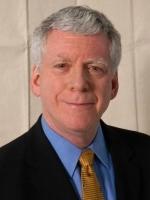A general system theory approach to understanding and changing the college classroom.
A dissertation at the U of Massachusetts
Obtain this book
To download a digital copy of this book for free
You need to register for a free GO Society web site account if you don't already have one at https://globalro.org/user/register. Then log into your account at https://globalro.org/user/login. Next, return to this page and you will be able to see and download the file.
ABSTRACT A General System Theory Understanding and Changing the Approach to College Classroom
,August 1976 Herbert P. Koplowitz, B.A. Cornell University M.S. , Ph.D. , University of Massachusetts
Directed by: J. William Dorris
This dissertation critiques the conceptualization of the college classroom which predominates the literature of educational psychology and higher education, and it develops an alternative model. The predominate mode of analysis, called "mechanistic", is characterized by the treatment of the college classroom as though: l) classroom roles were independent, so that, e.g., the teacher's role could be changed -without changing the students' roles, 2) change and stability of the classroom were governed by laws of momentum, so that, e.g., the effect of a change attempt is always proportional to and in the same direction as the force applied, 3) classroom comm-ani cat ions were simple and direct, so that, e.g. there is almost never more than one way to interpret what someone says, and k) the classroom did not interact with other systems, so that, e.g., a classroom teacher need not consider students' activities and situations outside of the class. Examples from the literatures of higher education and educational psychology are used to show how those literatures are predominantly built on a mechanistic analysis and the need for an alternative model is shown. 's The alternative model developed is based on von Bertalanffy designed to General System Theory, an approach to science originally
provide a more appropriate mode of analysis than the mechanistic for biology. Major concepts from General System Theory are illustrated by examples from their current application in family therapy by such therapists as Haley.
The General System Theory of the college classroom is presented and illustrated with examples from the literature and from the author's experiences as a teacher and a classroom consultant. This model is characterized by its treatment of the classroom as though: l) classroom roles -were interdependent, so that, e.g., a change in the teacher's role requires a change in the students' roles, 2) the classroom were stabilized by homeostatic tendencies and classroom change were affected by members' goals and positive feedback cycles, so that, e.g., a change effort might result in no effect, a great effect, or an effect in the direction opposite of the applied force, 3) classroom communication were complex, always open to interpretation, and always including a relationship component in addition to its content, and k) the classroom •were in constant interaction with other systems, including the department the students peer groups and families , and other classrooms.
Implications of this model are drawn for classroom consultants (people involved in faculty development and instructional development) classroom members who wish to make changes in classrooms, and researchers.
,August 1976 Herbert P. Koplowitz, B.A. Cornell University M.S. , Ph.D. , University of Massachusetts
Directed by: J. William Dorris
This dissertation critiques the conceptualization of the college classroom which predominates the literature of educational psychology and higher education, and it develops an alternative model. The predominate mode of analysis, called "mechanistic", is characterized by the treatment of the college classroom as though: l) classroom roles were independent, so that, e.g., the teacher's role could be changed -without changing the students' roles, 2) change and stability of the classroom were governed by laws of momentum, so that, e.g., the effect of a change attempt is always proportional to and in the same direction as the force applied, 3) classroom comm-ani cat ions were simple and direct, so that, e.g. there is almost never more than one way to interpret what someone says, and k) the classroom did not interact with other systems, so that, e.g., a classroom teacher need not consider students' activities and situations outside of the class. Examples from the literatures of higher education and educational psychology are used to show how those literatures are predominantly built on a mechanistic analysis and the need for an alternative model is shown. 's The alternative model developed is based on von Bertalanffy designed to General System Theory, an approach to science originally
provide a more appropriate mode of analysis than the mechanistic for biology. Major concepts from General System Theory are illustrated by examples from their current application in family therapy by such therapists as Haley.
The General System Theory of the college classroom is presented and illustrated with examples from the literature and from the author's experiences as a teacher and a classroom consultant. This model is characterized by its treatment of the classroom as though: l) classroom roles -were interdependent, so that, e.g., a change in the teacher's role requires a change in the students' roles, 2) the classroom were stabilized by homeostatic tendencies and classroom change were affected by members' goals and positive feedback cycles, so that, e.g., a change effort might result in no effect, a great effect, or an effect in the direction opposite of the applied force, 3) classroom communication were complex, always open to interpretation, and always including a relationship component in addition to its content, and k) the classroom •were in constant interaction with other systems, including the department the students peer groups and families , and other classrooms.
Implications of this model are drawn for classroom consultants (people involved in faculty development and instructional development) classroom members who wish to make changes in classrooms, and researchers.





